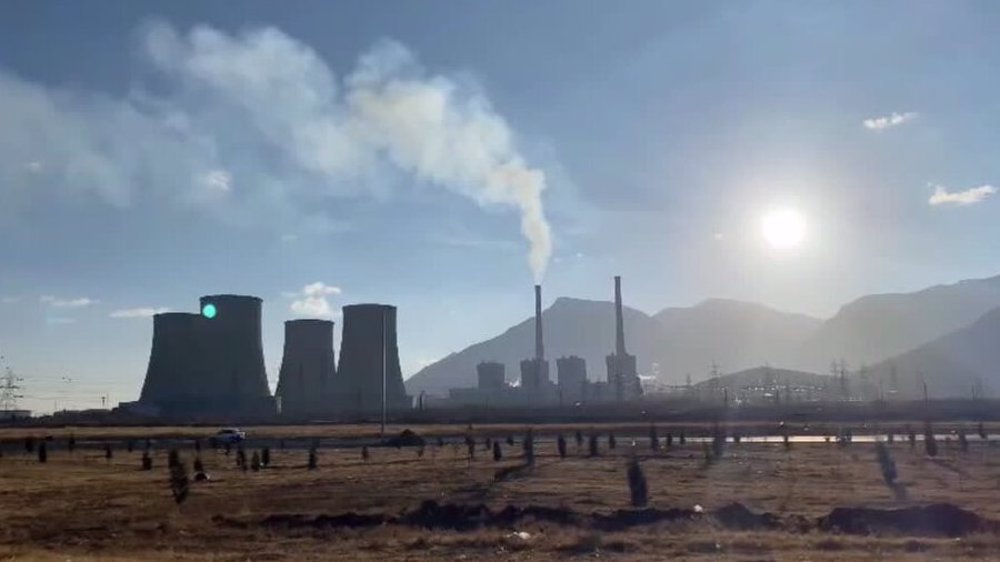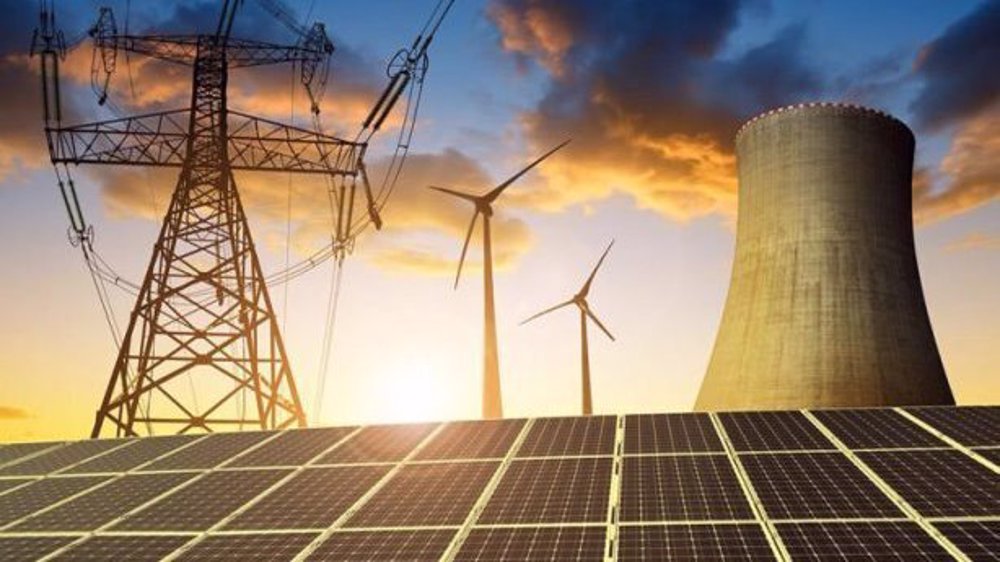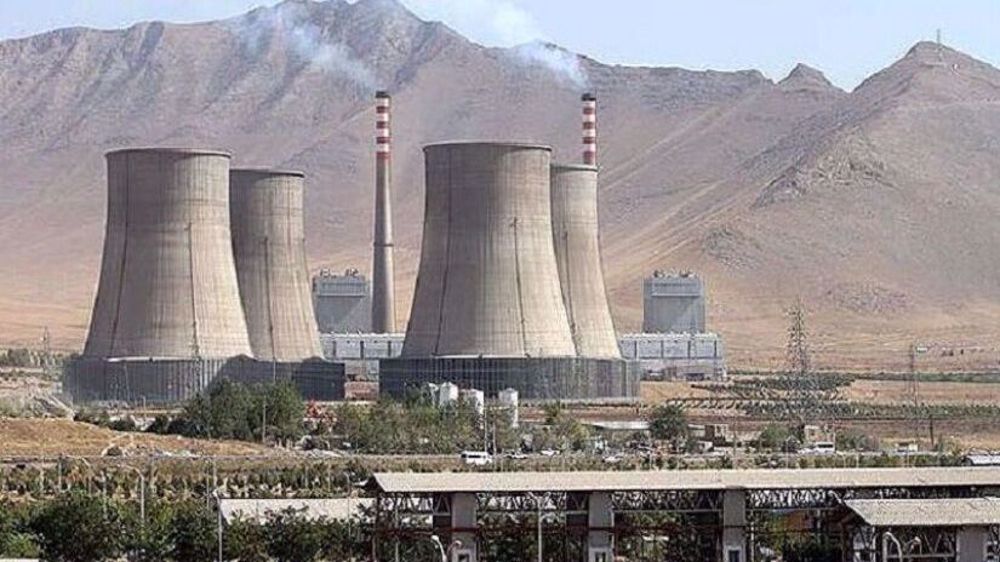US cannot force Iran oil exports to zero: Analysis
The US decision on Monday more than failing to snuff out Iran’s oil exports will disrupt markets and complicate Washington’s relations with Beijing and even its own partners, industry analysts say.
Observers expressed serious doubts after US Secretary of State Mike Pompeo said Washington’s aim was to bring Iran’s crude exports to zero as he announced an end to the waivers which allowed imports from the Middle Eastern powerhouse.
"It's difficult to imagine all exports being cut off, especially since China is still a major buyer of Iranian crude oil," Jim Burkhard, vice president for oil markets at IHS Markit, told Associated Press.
Last month, Iranian exports of crude oil and condensate surged to levels near before sanctions to 1.70 million barrels per day (bpd), surprising market watchers.
As Iran’s largest oil buyer, China has defied the Trump administration’s demand that it gradually bring the imports to zero, increasing its purchases instead.
India is Iran’s second largest oil importer, with Turkey, Japan, South Korea also buying significant volumes.
All these countries have robust trade, diplomatic and security relationship with the US which is careful not to jeopardize but by retracting its oil exemptions, the Trump administration is in fact encroaching on their energy security.
‘Energy dominance’
Theoretically, it may not be difficult to source oil from other countries, but the move involves enormous financial expenses which none of these customers want to pay for no good reason.
To source from alternative sources, they mostly have to refit their refineries which are adjusted to process Iranian grades. And that is apparently what the profit-centric administration of President Donald Trump is pushing for.
The United States is now the world’s biggest oil producer, pumping more than 12 million bpd with exports topping 3 million bpd.
Pompeo is the pointman to push Trump’s “energy dominance” agenda that seeks to advance diplomatic and policy objectives through rapidly expanding US oil and gas exports.
Last month, the US secretary of state met with top oil executives to press them on following the Trump administration’s policy of reducing Iran’s oil exports to zero.
According to Reuters, executives from major companies including Chevron, Total, Royal Dutch Shell, ConocoPhillips and Occidental Petroleum had been invited to the closed-door meeting in Houston.
On Monday, Bloomberg said some of the biggest beneficiaries of sanctions aimed at crippling Iran are oil companies on the other side of the world.
Drillers based in Texas, Oklahoma and California added billions of dollars in market value after Pompeo announced that the US will no longer give Iran’s customers a pass on sanctions, the financial news and information provider said.
The United States is reportedly pushing its fast-growing condensate, and also naphtha, on South Korea which is a key buyer of the ultra light oil from Iran.
However, alternative supplies from the US would entail higher pricing for refiners because they require longer haulage period.
According to traders, voyage period for import of crude from Middle East is about two weeks, whereas this period for US crude will be about a month.
“If there is a sharp fall in the oil price between the purchase and delivery period, refiners will lose out money. So, there is a pricing risk involved in longer hauled crude,” K Ravichandran, senior vice president at ICRA Ltd, told Bloomberg.
The US, however, is projecting its energy putsch against Iran in a political light, saying it is aimed at undercutting Tehran power across the Middle East.
Trump said on Monday Saudi Arabia and the United Arab Emirates would ensure an “appropriate supply” of oil along with the US.
“Saudi Arabia and others in OPEC will more than make up the Oil Flow difference in our now Full Sanctions on Iranian Oil,” he said on Twitter.
It was first in July when Trump said Saudi Arabia had assured him to raise oil production if needed, but the US president ultimately had to issue waivers for Iranian exports in order to help cool down prices.
Industry analysts say the kingdom can barely raise output by 1 million bpd to 11 million bpd and even that would be difficult.
The Saudis and the UAE have tried to give the confidence to Trump to go hardcore on Iran, but observers say the question is how they can really do it and for how long.
“We will be in unchartered territory. While Saudi Arabia has the capacity in theory, it takes time and money to bring these barrels online, possibly up to 1 year,” Amrita Sen, chief oil analyst at Energy Aspects, says.
With a potential output fall in Iran and further outages in Venezuela and Libya, the world could be short of 2 million bpd of oil output without an increase in Saudi output by the end of the year.
“The Saudis do not have 2 million bpd of spare capacity as it would imply production of 12 million bpd. They can likely produce a maximum of 11 million and even that will be running their system at stress levels,” Garry Ross, head of global oil analytics at S&P Global, said.
“A 2-million-bpd Saudi production increase would move the Kingdom’s oil production into unchartered territory and would wipe out completely the kingdom’s spare capacity,” Giovanni Staunovo, commodity analyst at UBS, said.
With supply concerns and dwindling spare capacity and oil market tightness worries, prices are expected to become more volatile over the coming months.
Saudi and US assurances on Monday failed to cool down the markets as crude leapt to its highest in six months.
International benchmark Brent crude futures closed 3 percent higher to $74.04 a barrel, firing up US inflation markets.
Trump is extremely sensitive to financial indicators and any hard impact may change his decision which apparently is not his own. The decision came after his hawkish security adviser John Bolton argued that pressuring Iran was meaningless with the exemptions still in place.
According to Michael Lynch, president of Strategic Energy & Economic Research in Winchester, Massachusetts, the ultimate impact depends on how hard the Saudis work to fill the gap and how Trump reacts if the crackdown impacts US consumers.
“These last few days, we’ve seen plenty of stories about rising gasoline prices, just in time for the summer driving season,” Lynch said. “What everybody is going to be pointing to is Trump tightening sanctions on Iran.”
A “complete cutoff of waivers is unlikely, since the [Trump] administration clearly prefers oil prices that aren’t too high,” Lynch went on to say.
Edward Moya, senior market analyst at Oanda, told MarketWatch: “While the US wants to see Iran exports fall to zero, they won’t.”
“If that were to happen, we would see a military escalation in the Persian Gulf,” he said, referring to the threat of a Strait of Hormuz closure.
On Monday, Pompeo was quoted to have told a private meeting that the United States would not be seeking a military confrontation with Iran.
In Tehran, Iranian officials said the country is prepared for the US decision to end the waivers.
Minister of Petroleum Bijan Zangeneh said on Tuesday the US “dream of zeroing out Iran's oil exports will not be realized and this policy of sanctions will fail with full force.”
“Basically, some regional countries announce their spare capacity more than it really is in order to excite the US and put pressure on Iran and calm down the consumers,” he said, in reference to Saudi Arabia and the UAE.
“The United States and its allies, by politicizing the oil and using it as a weapon, are making a mistake, the impact of which will boomerang on many sides given the fragility of the market,” Zangeneh added.
"Whether the waivers continue or not, Iran's oil exports will not be zero under any circumstances unless Iranian authorities decide to stop oil exports ... and this is not relevant now," an unnamed source told Tasnim news agency.
"We have years of experience in neutralizing efforts by enemies to strike blows against our country," the source added.
VIDEO | Carol Singers for Palestine on London’s Parliament Square
American warplane downed after Yemeni attacks 'baffled' US air defense: Ansarullah
VIDEO | Yemenis praise the military for its successful operations against Israel
VIDEO | Israel continues to bomb Gaza homes
VIDEO | An insider's view of the country: Meybod City in Yazd
‘All wars have rules. All of those rules have been broken’ by Israel
VIDEO | Report flags India’s violation of rights of Rohingya detainees
Turkey's foreign minister meets Syria's de facto leader in Damascus













 This makes it easy to access the Press TV website
This makes it easy to access the Press TV website